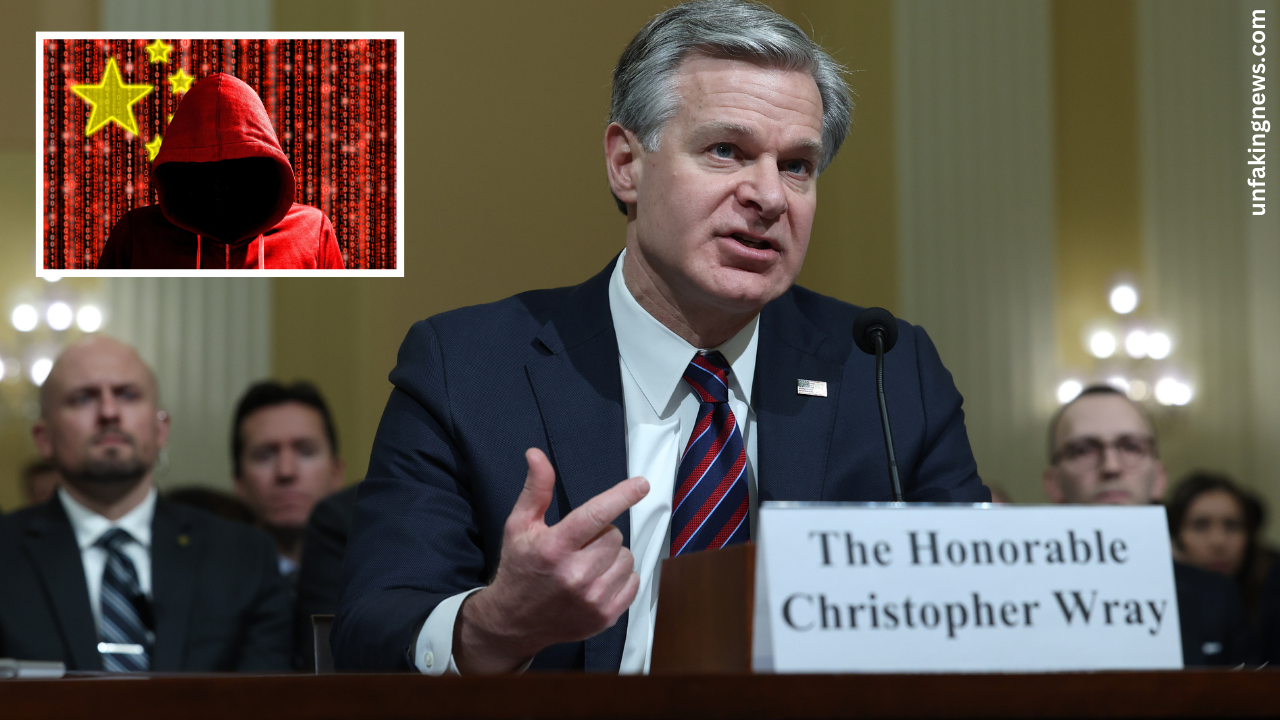Urgent Testimony Reveals Alarming Threat to Critical Systems
In a chilling revelation before the House Select Committee on the Chinese Communist Party, FBI Director Christopher Wray declared that hackers affiliated with the Chinese government are gearing up to inflict “real-world harm” on critical U.S. infrastructure. The FBI chief emphasized that the targets include water treatment plants, the electric grid, oil and natural gas pipelines, and transportation hubs.
Escalating Threats to Vital Infrastructure
The Scope of China’s Cyber Aggression Unveiled
Wray’s testimony underscores the severity of the threat posed by Chinese hackers, who are allegedly positioning themselves on American infrastructure with the intent to cause widespread chaos whenever Beijing deems fit. He stated, “China’s hackers are preparing to wreak havoc and cause real-world harm to American citizens and communities.”
Beyond Technology: An Attack on Freedom
FBI Director Highlights Broader Implications
While concerns about China’s offensive cyber capabilities are not new, Wray’s public warning highlights the escalating worry within the U.S. government about the potential impact on national critical infrastructure. The hearing also featured other high-profile officials, including General Paul Nakasone, commander of U.S. Cyber Command, who stressed the persistent nature of the cyber threat.
Targeting Essential Systems
Unveiling the Precise Targets of State-Sponsored Hacking
The Chinese hackers, backed by the government, are reportedly targeting essential elements such as water treatment plants, electrical infrastructure, and oil and natural gas pipelines. Wray cautioned that these cyber threats represent tangible dangers to the safety and prosperity of the nation. The director pointed out that the hackers have exploited basic flaws in U.S. technology, taking advantage of decades of insecure software development.
Skepticism Amid Diplomatic Assurances
Doubts Cast on China’s Pledge of Non-Interference
The timing of the revelation adds to existing tensions between the United States and China, encompassing issues such as Taiwan’s status, military build-up, economic competition, and human rights concerns. Wray’s statement comes on the heels of reports that Chinese President Xi Jinping assured President Joe Biden in November that China would not interfere in the 2024 U.S. election.
Mitigating the Threat: Vigilance and Action
Strategies and Efforts to Safeguard National Security
Despite these assurances, Wray expressed skepticism, stating, “China has promised a lot of things over the years. So, I guess I’ll believe it when I see it.” The FBI director emphasized that the U.S. government’s concerns are not directed at Chinese Americans or Chinese nationals residing in the U.S., who themselves often fall victim to Beijing’s aggression.
The Path Forward: Strengthened Cybersecurity Measures
International Cooperation Essential in the Face of Cyber Threats
The urgency of addressing this cyber threat was reiterated by Jen Easterly, director of the Cybersecurity and Infrastructure Security Agency, who disclosed that the U.S. has already “found and eradicated” Chinese cyber intrusions in crucial sectors. As the U.S. government remains vigilant, efforts to mitigate the impact of these cyber threats continue, highlighting the imperative need for enhanced cybersecurity measures and international cooperation.

